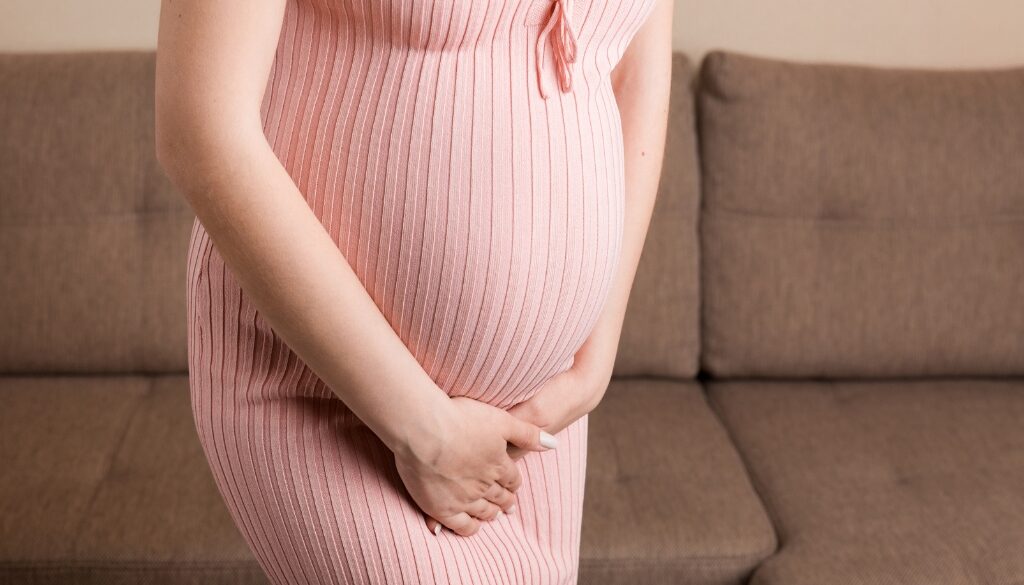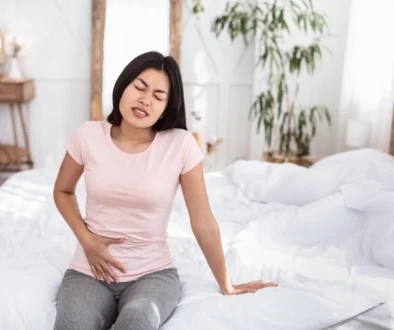Abdominal Pain During Pregnancy
Pregnancy is an exciting and transformative experience, but it often comes with its fair share of discomfort, particularly when it comes to abdominal pain during pregnancy. Many women experience some level of discomfort, from mild low abdominal cramping to occasional stomach cramps during pregnancy. While these sensations are often normal, knowing what to expect and when to consult a doctor is crucial. Let’s explore the common causes of abdominal discomfort in pregnancy and how to manage it.
What Causes Abdominal Pain During Pregnancy?
Pregnancy brings many physical changes, and abdominal pain is a common issue during pregnancy and can stem from different causes. Here are some of the most common reasons for low stomach cramps pregnancy:
1. Round Ligament Pain
As your uterus expands, the ligaments supporting it stretch, which can lead to a sharp or dull pain on either side of your lower abdomen. This is typically harmless and known as round ligament pain. You might feel this when you change positions quickly, like getting out of bed or bending over. This discomfort is common during the second trimester.
2. Hormonal Changes and Growing Baby
As your baby develops, your body undergoes adjustments to support these changes. This can cause stretching and mild cramping, often felt in the lower abdomen. These sensations are usually nothing to worry about and are signs that your body is adjusting to pregnancy. In some cases, the hormonal shifts can also affect digestion, leading to bloating or mild stomach ache during pregnancy.
3. Gastrointestinal Issues
Pregnancy hormones, particularly progesterone, can relax the digestive system’s muscles, leading to constipation, bloating, and gas. These issues can cause discomfort in the abdomen and may be mistaken for low stomach cramps during pregnancy or mild stomach ache. Eating smaller meals, staying hydrated, and including fibre-rich foods can help ease these symptoms.
4. Urinary Tract Infections (UTIs)
A UTI can also cause abdominal discomfort in pregnancy. If you experience pain or a burning sensation during urination, along with lower abdominal pain, it’s essential to see a doctor. Untreated UTIs can lead to complications and should be addressed as soon as possible.
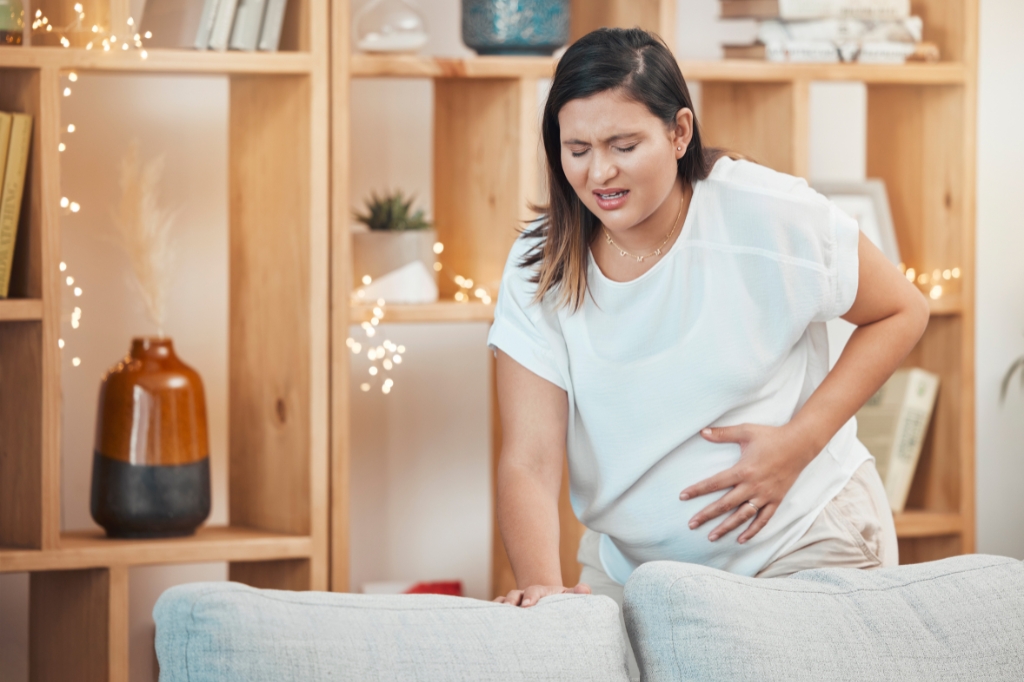
When Should You Be Concerned?
While some discomfort is typical, sure signs require medical attention. If you experience the following, it’s essential to contact your doctor right away:
- Severe or persistent abdominal pain
- Pain accompanied by bleeding or spotting
- Pain that feels sharp or one-sided, especially in the second or third trimester
- Dizziness, fever, or chills with abdominal pain
- Sudden, severe pain that doesn’t subside
If you experience any of these symptoms, seeking medical attention immediately is crucial, as they could signal severe conditions like an ectopic pregnancy, miscarriage, or other complications.
How to Relieve Abdominal Pain During Pregnancy?
Fortunately, most cases of low abdominal cramping during pregnancy or stomach cramps during pregnancy can be managed with simple home remedies. Here are some tips to help relieve discomfort:
1. Rest and Relaxation
Sometimes, the best remedy for abdominal discomfort in pregnancy is simply resting. Lie down on your side, preferably the left, to relieve pressure on your uterus and improve blood circulation. Avoid sudden movements that could trigger cramping.
2. Heat or Cold Compress
For mild cramping or discomfort, use a lower abdomen heating pad. Alternatively, a cold compress can help reduce inflammation and relieve pain from stretching muscles or ligaments.
3. Stay Hydrated and Eat Well
Drinking plenty of water can help prevent dehydration, which can worsen cramps and discomfort. Eating smaller meals daily and avoiding heavy, greasy foods can reduce stomach discomfort and bloating.
4. Gentle Exercise
If your doctor approves, light exercises or gentle stretching may help relieve tension in your abdominal muscles. Activities like walking or prenatal yoga can also improve digestion and ease bloating, which may help relieve stomach aches during pregnancy.
5. Avoid Gas-Producing Foods
If low stomach cramps in pregnancy are caused by bloating or gas, try avoiding foods that can trigger these symptoms. Beans, broccoli, cabbage, and carbonated drinks are common culprits. Including more fibre in your diet can ease constipation and alleviate discomfort.
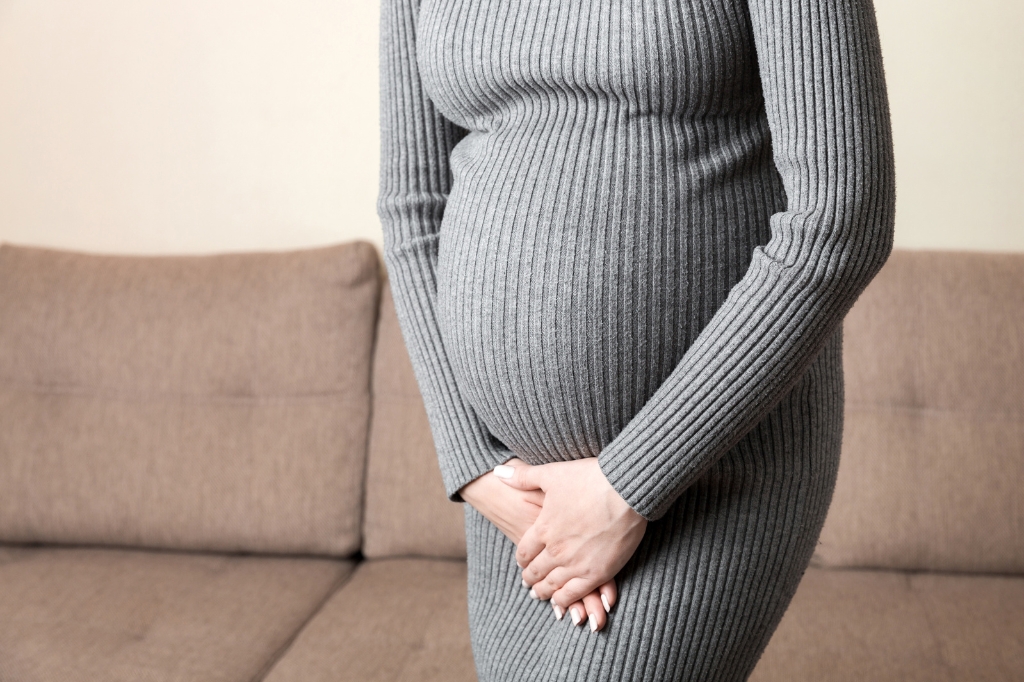
When to See a Doctor?
If your discomfort is intense, ongoing, or accompanied by alarming symptoms like bleeding or fever, it’s always best to contact your healthcare provider. Abdominal pain during pregnancy can sometimes indicate a more serious problem, such as an infection or a complication like an ectopic pregnancy, so it’s important to stay vigilant and seek help when needed.
FAQs
1. Is it normal to have low abdominal cramping during pregnancy?
Yes, mild cramping is common during pregnancy as your body adjusts to the growing baby. However, reach out to your doctor if the cramping becomes severe or is accompanied by symptoms such as bleeding.
2. How can I tell if my stomach ache during pregnancy is normal?
Normal discomfort usually comes and goes and isn’t severe. If you feel sharp pain or ongoing discomfort along with other symptoms, it’s essential to consult your doctor.
3. Can stomach cramps during pregnancy be a sign of a problem?
While mild cramps can be expected, severe or persistent cramps, especially with other symptoms, could point to a more serious condition and should be evaluated by a healthcare provider.
4. How can I relieve low stomach cramps pregnancy at home?
Resting, using a heating pad, staying hydrated, and eating small, fibre-rich meals can all help ease discomfort. If the pain persists or intensifies, consult your doctor.
5. When should I see a doctor for abdominal discomfort in pregnancy?
If you experience intense or ongoing pain, bleeding, dizziness, fever, or sharp abdominal pain, it’s essential to seek medical attention immediately.
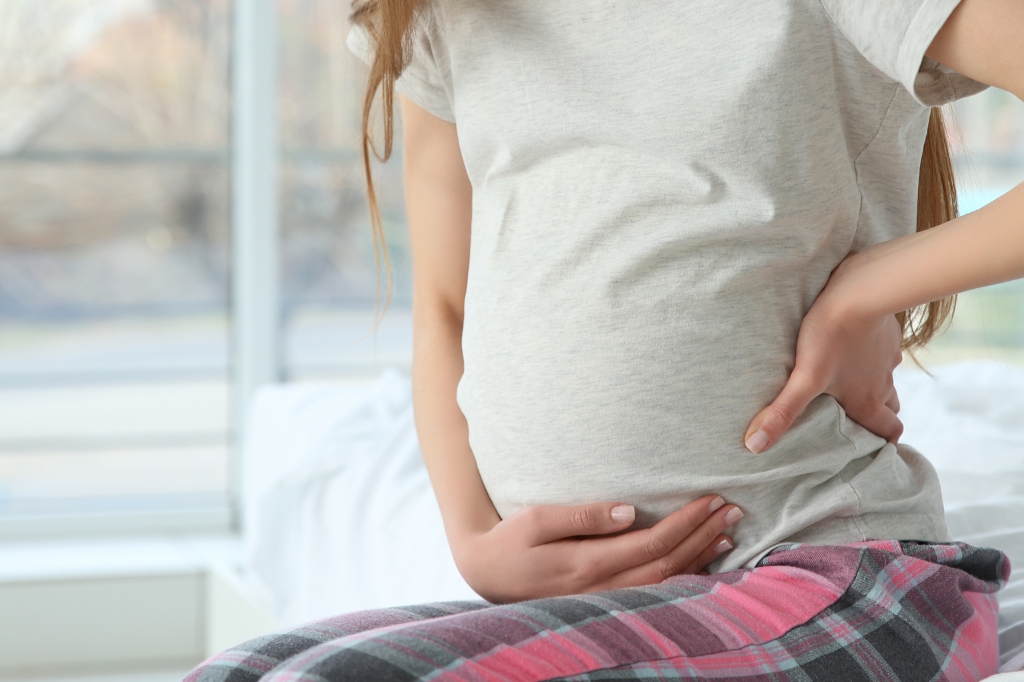
Conclusion
Abdominal pain during pregnancy is common and often harmless, but it’s essential to understand the causes and when to seek help. Low abdominal cramping during pregnancy, stomach aches during pregnancy, and stomach cramps during pregnancy are usually manageable with rest, hydration, and gentle exercise. However, if you experience any concerning symptoms, don’t hesitate to contact your doctor. Your healthcare team at Lifeline Clinic Dubai is here to support you through a healthy, comfortable pregnancy.

